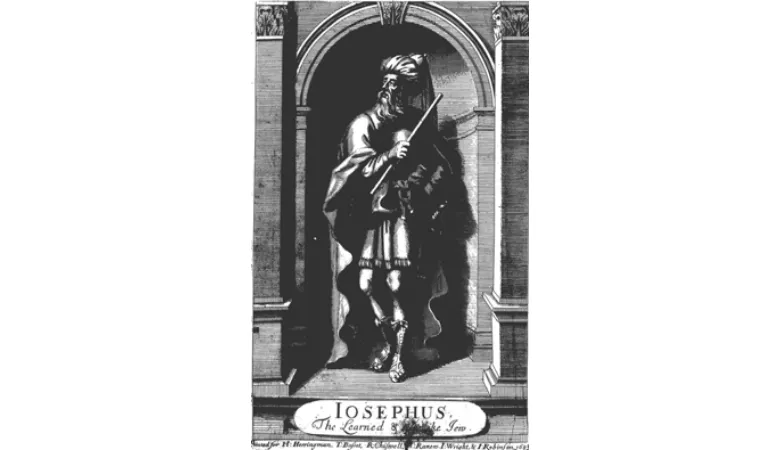I’m delighted to have been awarded this fellowship by the Leverhulme Trust, which will enable me spend the coming academic year immersing myself in the history of history-writing since the eighteenth century. It seems particularly timely to embark on this study at a time when the COVID-19 crisis has heightened our sense of the suffering of others that surrounds us. I hope that my critical investigation of empathy-based arguments for the value of history in the past will usefully contribute to the intellectual and pedagogical renewal of the discipline in the future.
Professor Adam Sutcliffe
30 April 2020
King's academics awarded Leverhulme Research Fellowships
We are delighted to announce three Leverhulme Research Fellowships for Faculty academics and one British Academy/Leverhulme Senior Research Fellowship.

Professor David Owens, Professor Adam Sutcliffe and Professor Julian Weiss have been awarded 2020 Leverhulme Research Fellowships and Professor Ziad Elmarsafy has been awarded the the British Academy/Leverhulme Senior Research Fellowship.
The Leverhulme Research Fellowships are intended to enable established scholars in any discipline, needing relief from teaching and administration, to have the time to complete a significant piece of research.
Adam Sutcliffe, Professor of European History and Co-Director of the Centre for Enlightenment Studies, has been awarded a Leverhulme Research Fellowship for his research project Who Cares? Empathy, Equity and the Uses of History.
The project explores the changing, and often contested, place of empathy in the western historical tradition. It will trace the uses of this idea from its early marshalling, as ‘sympathy’, in the eighteenth-century Scottish Enlightenment, through nineteenth-century negotiations of sentiment, nationhood, empire and objectivity, to late twentieth-century quarrels over empathy and historical pedagogy.
Julian Weiss, Professor of Medieval & Early Modern Spanish Studies, has also been awarded a Leverhulme Research Fellowship for his research project on Jewish historian Yosef ben Matityahu, better known as Flavius Josephus (37-c. 100 CE). Weiss's book will examine why he was translated and why he mattered to Christians, crypto-Jews and Jews in the world that spanned the global Empires of Spain and Portugal and the lands of the Sephardic diaspora.
The story begins with a Spanish translation produced on the eve of the Jews’ expulsion from Spain in 1492 and ends with a translation made for Jewish exiles who had travelled to the Low Countries to recover and practice their faith (Amsterdam, 1687). By linking translation, migration and conversion, his project opens up modern language research to diasporic communities, countering traditional approaches based on the study of national literary traditions.
This will be the first book on any of the vernacular translations that spread throughout early modern Europe. I want to know how Spanish Christians translated a Jewish writer in an Inquisitorial world that rejected Judaism and all the differences it entailed. It is fascinating to see how the same author could then be retranslated by diasporic Jews wishing to reclaim that difference as a positive sign of identity
Professor Julian Weiss

David Owens, Professor of Philosophy, will produce a monograph entitled, Bound by Convention. The monograph explores whether and when we should take social rules seriously by comparing various cultural norms. The first part of the book will outline a theoretical framework for thinking about social norms as such. The second part of the book will apply the framework to several topics which are discussed heavily across various disciplines.
His research will cover laws but also more informal social practices, such as the rules of games and other competitions, rules on how you should behave in public, respect for privacy, property and rules about family relationships.
A key element of Owens's research will be how these rules vary from place to place, for example, comparing British family life with Italian. In doing so, he says there is a question about why we should go along with the rules which happen to be recognised in our cultures, providing an important opening for Owens's research.
The social impact of Owens's research stems from the humanities and social sciences primary concerns with social norms, how they come to be recognised, how they evolve and the role such rules play in our lives.
I'm delighted and honoured to be awarded a Leverhulme Research Fellowship which will enable me to bring to completion a project about social norms and conventions on which I've been working for the past decade.
Professor David Owens
Ziad Elmarsafy, Professor of Comparative Literature, has been awarded the British Academy/Leverhulme Senior Research Fellowship for his research on Race and Slavery in Contemporary Arabic Literature and Culture.
The project explores questions of race and slavery in contemporary (post-1970) Arabic literature. By bringing theories gleaned from work by Orlando Patterson and Critical Race Theory (inter alia) to bear on novels published over the past four decades, the project will investigate the relationship between race and slavery on one hand, and the forms and configurations of citizenship and authoritarian rule in the Middle East and North Africa on the other. Project outputs will include a monograph, a series of workshops, and an international conference on the subject.
This fellowship will give me the time and space I need to research the topic thoroughly, to prepare a monograph and engage the full resources of the King’s College London universe to organise events and workshops that will help us better understand and end this heinous practice.”
Professor Ziad Elmarsafy



